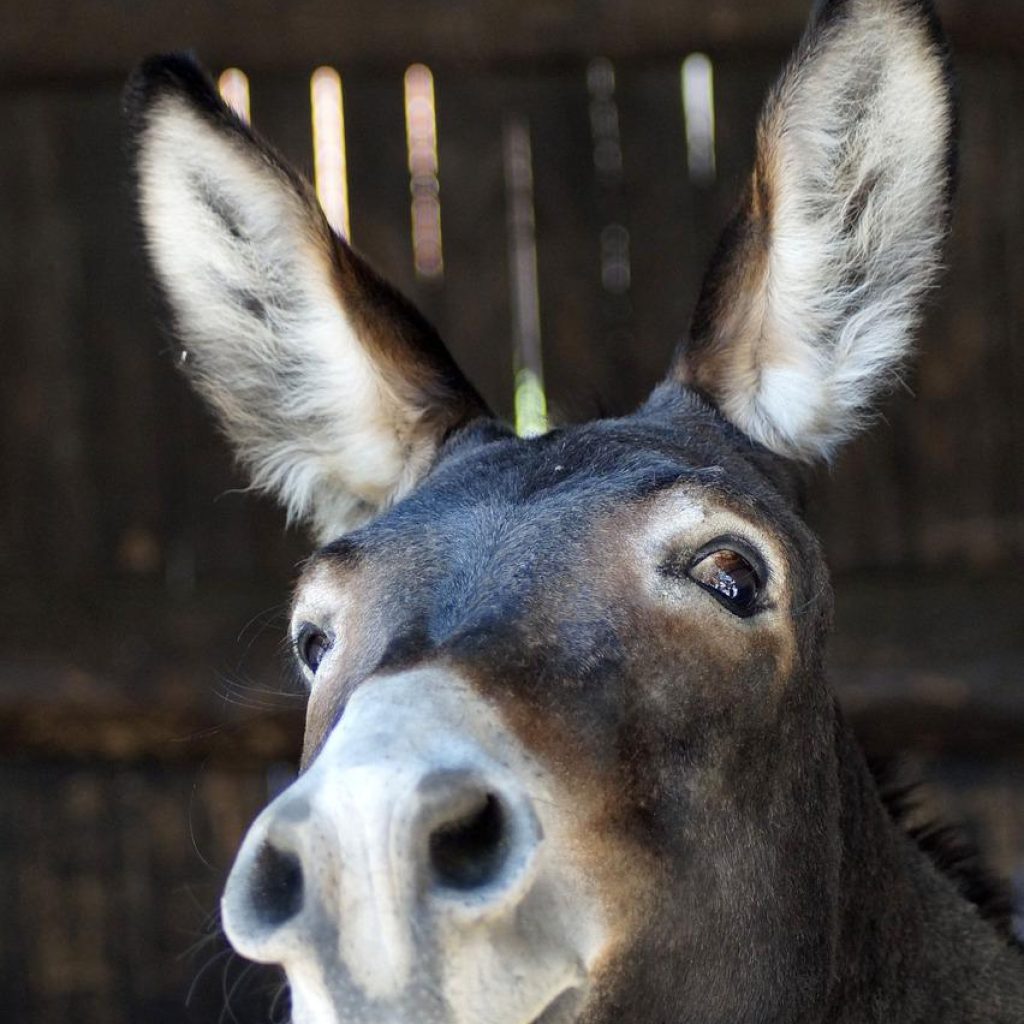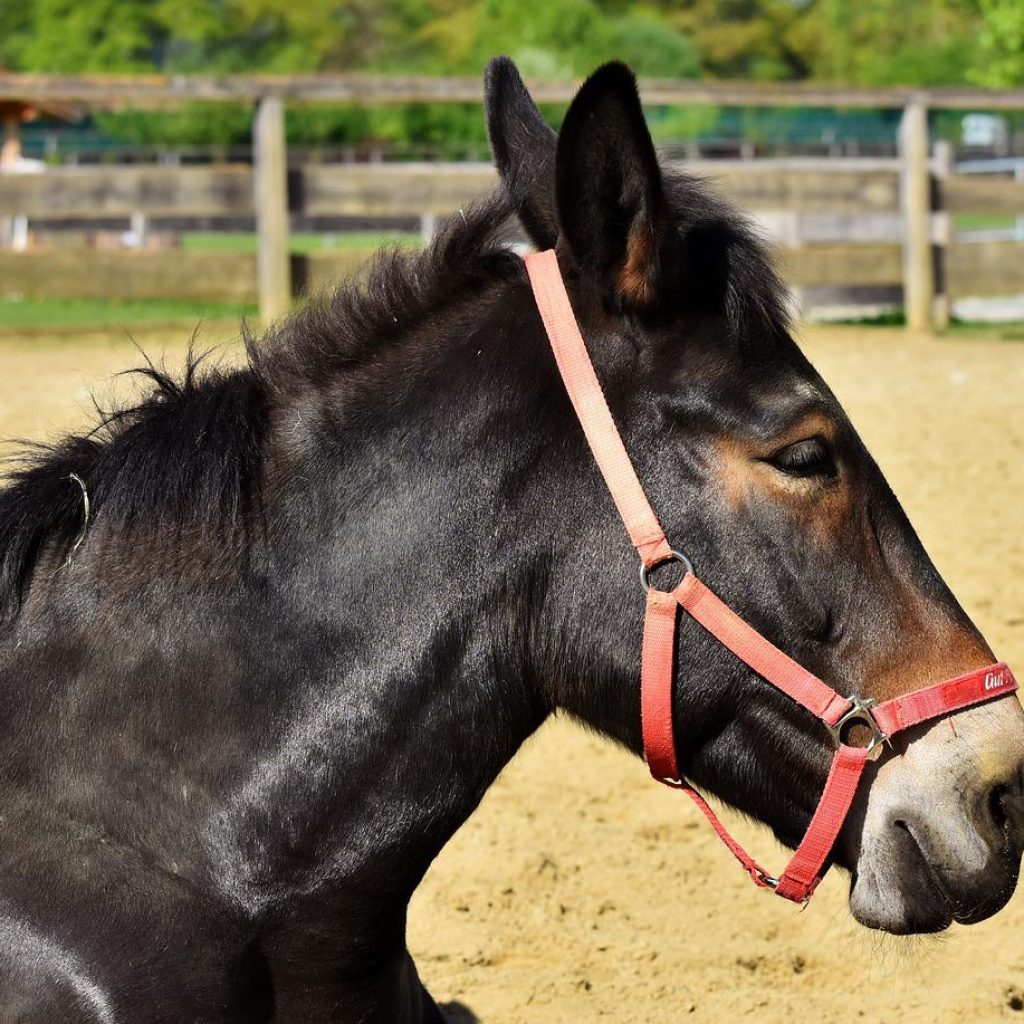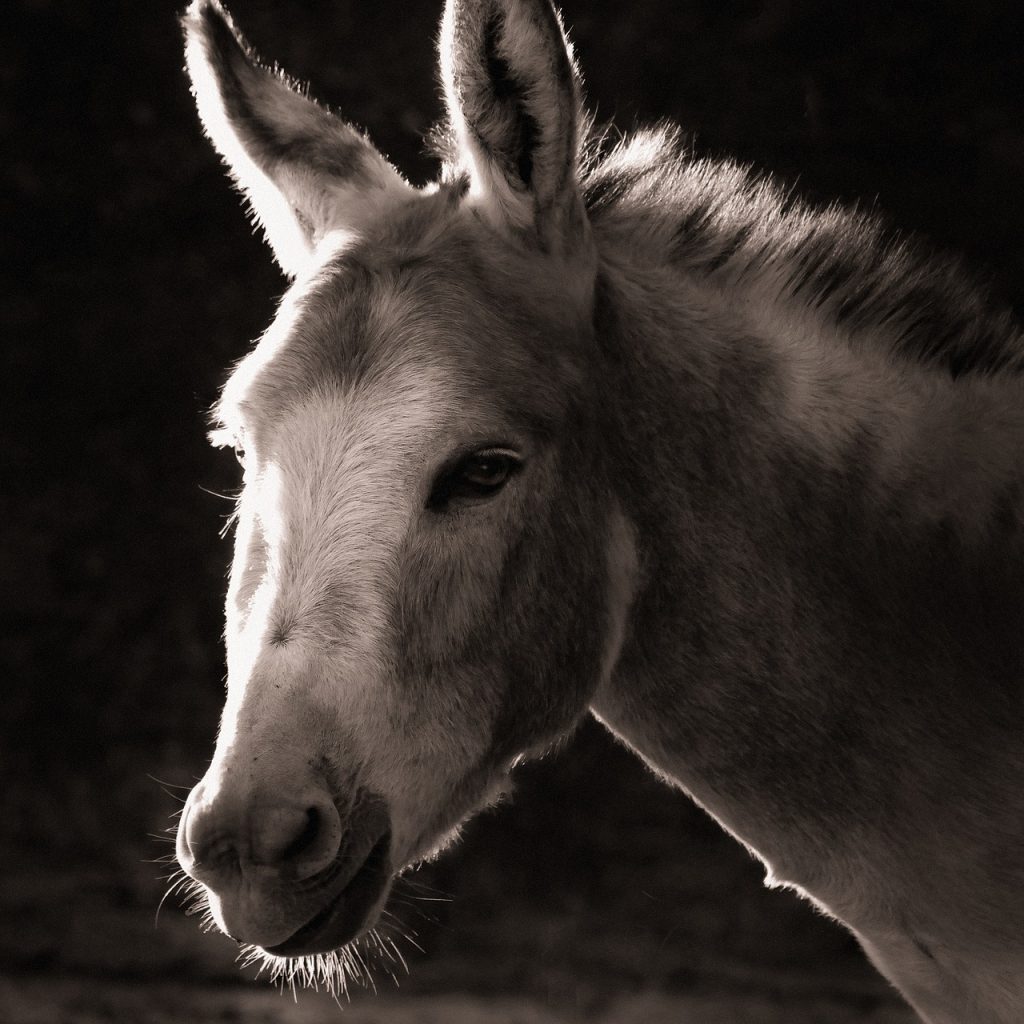Donkeys and mules are readily recognizable by their distinguished large ears. These equids frequently have the reputation of requiring less veterinary attention. Although they are certainly more stoic (and perhaps smarter!) than horses, they still need—and deserve—the same preventative veterinary care and routine farrier work.

The long-eared can fall into a few categories, so here are the basic definitions:
Donkey: Like the horse, the donkey is in the Equidae family. The donkey is derived from the African wild ass and was likely domesticated about 5000-6000 years ago in Africa. Male donkeys are called jacks, female donkeys are called jennys.
Mule: mare/jack cross. Mules are sterile.
Hinny: stallion/jenny cross. Hinnys are sterile.

Donkeys and mules are thrifty, able to work hard and survive in barren conditions. Donkeys in particular are adapted to digest fiber of poor nutritional quality and they have lower daily intake requirements to maintain body weight. This heartiness is especially problematic in our non-working donkeys, as they tend to be easy keepers prone to obesity and related conditions, such as laminitis.
The stoicism of the donkey also means that health issues are frequently not observed as quickly as in horses. Donkeys can become extremely ill when health conditions cause them to stop eating, leading to high levels of fat mobilization within the bloodstream, or hyperlipidemia. Hyperlipidemia can be fatal unless treated aggressively. Signs of illness or pain in a donkey can be easily overlooked. Typically, the first sign of a problem is decreased water or food intake, but signs can also be as subtle as less interest in the surrounding environment and decreased social behavior with other donkeys. In addition, donkeys and mules can suffer from all the same ailments as horses, including colic, respiratory disease, hoof abscesses, and gastric ulcers.

Other considerations
While they have the reputation for being stubborn, frequently this behavior is due to a donkey taking time to assess a new situation. Donkeys are less likely to panic than horses, and more likely to protest- fight instead of flight! They also form strong bonds with other donkeys, so for travel or hospitalization, a donkey companion is a great way to minimize additional stress.

Recommended veterinary care for donkeys and mules includes the recommended yearly core vaccinations (rabies, tetanus, eastern and western encephalitis, and West Nile) as well as routine veterinary dental care and targeted deworming. Although most donkeys in our community are non-athletes, many Colorado donkeys participate in burro racing, the official sport of Colorado! This is a great way to bond with your donkey and help keep him fit. Whether your donkey or mule is a backyard companion or burro racing champion, don’t forget to ensure he has access to the same care as your horses!




